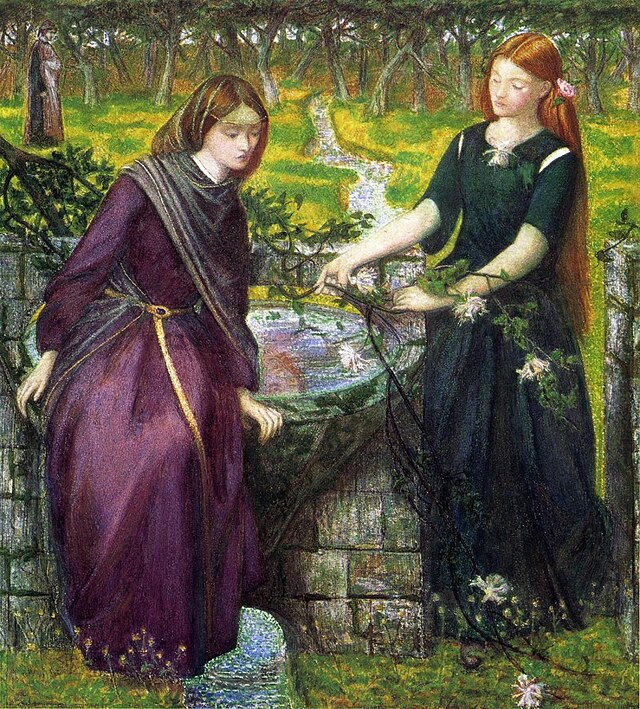Note: If you wish to receive, via e-mail, (1) my weekly newsletter or (2) daily copies of these posts, notify me at rrbates1951@gmail.com and indicate which you would like. I promise not to share your e-mail address with anyone. To unsubscribe, send me a follow-up email.
Sunday
I recently came across illuminating commentary (or midrash) on the story of Jacob, Rebecca, and Leah, one of today’s Old Testament options in the Episcopal liturgy. Rabbi Ismar Schorsch reflects on something that has always troubled me, which is the difficult position in which Leah finds herself. Along this vein, Schorsch shares a poem by the 6th century Galilean poet Rabbi Yannai that sympathizes with the elder sister.
To refresh your memory of the account in Genesis, Jacob falls in love with Rebecca but, after having served her father for seven years to earn her, is tricked into marrying her older sister Leah, who is described as having weak eyes. The wily Laban then requires another seven years of labor from Jacob as the price for Rebecca. To compensate for Jacob’s Rebecca preference, God makes sure that Leah has the most children. As Genesis put it, “When the Lord saw that Leah was hated, he opened her womb, but Rachel was barren.”
Leah then goes on to have six sons, the first one called Reuben, meaning “Behold, a son.” One sees her desperate longing throughout her childbearing:
And Leah conceived and bore a son, and she called his name Reuben, for she said, “Because the Lord has looked upon my affliction; for now my husband will love me.” She conceived again and bore a son, and said, “Because the Lord has heard that I am hated, he has given me this son also.” And she called his name Simeon. Again she conceived and bore a son, and said, “Now this time my husband will be attached to me, because I have borne him three sons.” Therefore his name was called Levi. And she conceived again and bore a son, and said, “This time I will praise the Lord.” Therefore she called his name Judah.
Yannai’s poem sympathizes with Leah’s longing for her husband’s love and finds some comfort in the thought that, although she is “hated below,” she is “yet beloved above”:
Our eyes are weak
with longing for Your love, O loving One,
for we are hated by the enemy.
Look how afflicted we are from within; see how hated we are from without –
as You looked on the affliction of Leah and saw her tormented by hate.
She was hated within the house and detested without.
But not every loved one is loved, nor every hated one hated:
There are some who are hated below, yet beloved above.
Those whom You hate are hated; those whom You love are loved.
We are hated because we love You, O Holy One!
Providing historical context for Yannai’s poem, Schorsch notes that it was written at a time when Christianity had become firmly ensconced in Rome and Byzantium. Standing in for the Jewish people in the way she is hated by those around her but loved by God, Leah serves to “bridge the chasm between faith and history, a sense of chosenness and the bitter taste of perpetual insecurity.” Through her story, sixth century Jews could reassure themselves that, if God had come to the aid of “the maligned and abused” in the past, maybe He (or She) would do so again.
Poem and poet then passed into relative obscurity, only resurfacing at the end of the 19th century. Then in 1938, with Nazi anti-Semitism on the rise, Menahem Zulay—a Hebrew tutor who had received his PhD at the University of Bonn– published a collection of Yannai’s poetry. Given what was happening in Germany, Leah’s vision of being hated took on new resonance.
Schorsch describes Yannai as “one of the earliest of a remarkable cluster of Hebrew poets who turned the ingenuity of midrash into the artistry of liturgical poetry.” The poem was designed to be recited in the synagogue as “an unrestrained and poignant plea for God’s love.”
Poetry as a vehicle for God’s message is yet another way that literature makes for better living.


